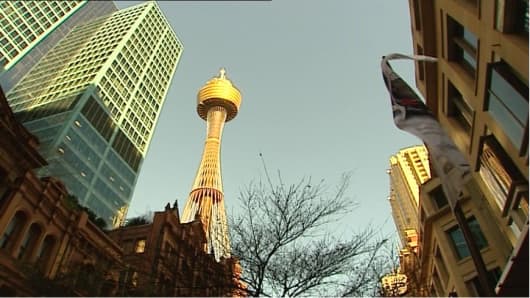Most Asian markets sagged Tuesday, led by financials as news of a possible capital injection at Washington Mutual failed to eliminate concerns about more bank writedowns.
Concerns that the U.S. recession, rising energy and raw material costs, and the credit crunch will hurt company earnings weighed on sentiment. Banks and other financials were pressured by nagging worries about further writedowns. Australia and New Zealand Banking Group fell in Sydney, and Mizuho Financial Group slipped in Tokyo.
Tokyo's Nikkei 225 Average shed 1.5 percent, dragged down by chip-related shares such as Tokyo Electron on a weak industry outlook. Japan's second-largest retailer Aeon posted its biggest daily fall in almost four years as many analysts expressed doubts about the midterm growth plan the firm unveiled after reporting its first profit fall in a decade. Financial shares were also among the hardest hit, including Sumitomo Mitsui Financial amid lingering credit concerns.


